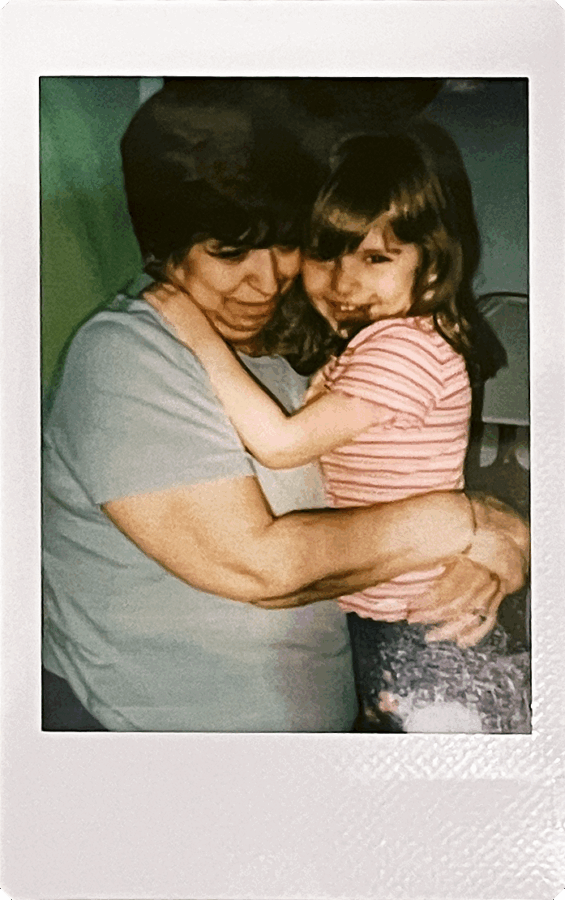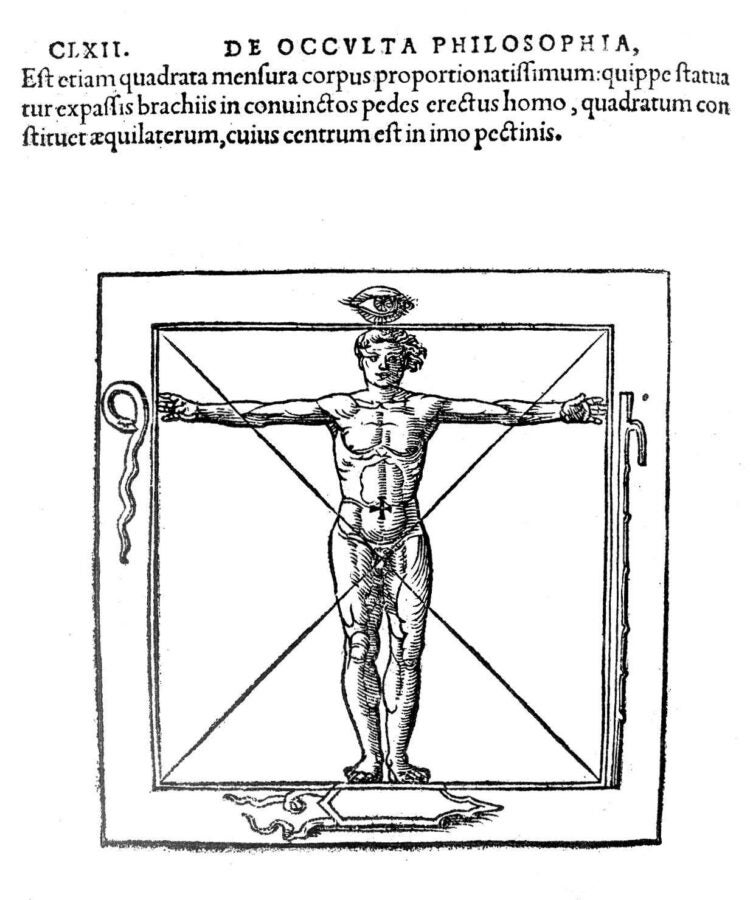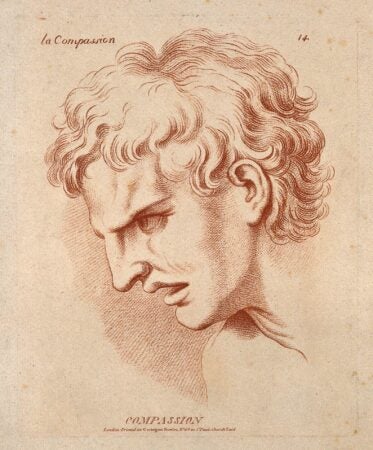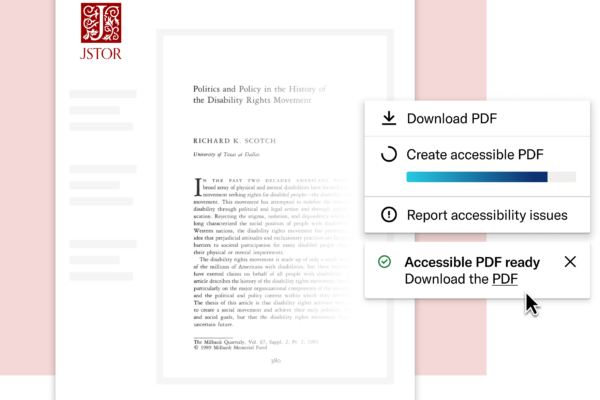This essay is part of a series exploring the enduring importance of the humanities. Stay tuned for more insights on why the humanities still matter.
Loss and literature
Often, the shortest stories are the most resonant.

In 2020, I lost my maternal grandmother. “Maternal,” in her case, was more than a qualifier–she quite literally played the role of “mother” in my life. My first words, my first steps, and the most formative milestones of my childhood and adolescence happened in her care. She bore the brunt of my insufferable teenage angst, offering a consoling embrace when life seemed to get ahead of me. When I lost her, a chapter of my life ended.
To lose such a constant in one’s early twenties is to lose a tether to one’s reality. The years after my grandmother’s death have been fraught with uncertainty. How could I possibly recover from such a loss? How are my accomplishments meaningful if she is not present to witness them? And, perhaps most disconcerting: who will I be by the time my own life begins to wane?
Everyone copes with and experiences loss differently. For me, it was acutely alienating. My relationship with my grandmother was singular, making my perspective on loss unique. I operated for what felt like ages on the assumption that no matter how much support I had, I could not possibly be seen.
That is, until I picked up A Very Easy Death. This brief, 112-page memoir by Simone de Beauvoir details her mother’s final days from an honest, compassionate perspective. Laden with recollections of a mother-daughter relationship and personal confrontations with mortality, it resonated with me in a way that no other text had. The acts of death and grief are explored in her memoir as though de Beauvoir were sitting across from me at a bistro recounting the experience. For the first time since my own experience and despite preceding me by thirty-six years, someone had finally seen me.
The humanities: Studies of the human condition
The connection I achieved through literature highlights the critical importance of the humanities. Encompassing history, literature, philosophy, art, and more, the humanities provide a lens through which one can view one’s personal experiences–making the universal personal and the personal universal.
The humanities and humanism have evolved significantly over centuries. In Western society, humanism traces back to Greece in the fourth and fifth centuries BCE. Sophists saw humanism as a cultural-educational program, aiming for the development of human faculties and excellence, as noted in Perez Zagorin’s “On Humanism Past & Present.”
In Rome, the concept evolved into “an ideal expressed in the concept of humanitas… [which] designated a number of studies–philosophy, history, literature, rhetoric, and training in the oratory.” Most influential, though, was the humanism that emerged from the fourteenth and fifteenth centuries that was “centered increasingly upon human interests and moral concerns rather than religion.” Its purpose was to cultivate a population of Christian men who were well-spoken, literate, and capable of integrating with high society.

Growing more secular over time, humanist values began to compete with the physical and biological sciences, the social sciences, and other modern subjects which comprised nineteenth century liberal education. Zagorin suggests that scientific and empirical research approaches overtook human-centered perspectives, particularly after the massive loss of life in World War I and the disillusionment that followed.
“Through de Beauvoir’s philosophical inquiries into life and death, I was able to confront and process my own grief more profoundly. Her reflections on mortality and the mother-daughter relationship resonated deeply with me, helping me to navigate my personal loss while also offering insights into the universal human condition.”
Scholarly perspectives on the importance of the humanities
Scholars argue that the humanities are essential for comprehending complex social dynamics and ethical questions. In “The Power of the Humanities and a Challenge to Humanists,” Richard J. Franke argues that humanistic interpretation “contributes to a tradition of interpretation.” Franke posits that human emotions and values are at the core of humanistic study, offering the ability to explore domains that “animate the human experience.” This is precisely how my engagement with Simone de Beauvoir’s memoir, A Very Easy Death, provided a foundation for evaluating broader human concerns.

Through de Beauvoir’s philosophical inquiries into life and death, I was able to confront and process my own grief more profoundly. Her reflections on mortality and the mother-daughter relationship resonated deeply with me, helping me to navigate my personal loss while also offering insights into the universal human condition. This connection underscores the humanities’ power to transform personal experiences into a deeper understanding of shared human emotions and values.
Moreover, Franke postulates that subjects under the humanities all lend themselves to critical thinking, which he defines as “that Socratic habit of articulating questions and gathering relevant information in order to make reasonable judgements.” Through the humanities, one can approach topics from varied vantage points to develop a holistic understanding of them.
In a study published in 2018 by the Journal of General Internal Medicine, medical students across institutions suggested that exposure to the humanities had an appreciable influence on their “tolerance of ambiguity, empathy, and wisdom.” The study’s discussion section further indicates that both the performance and observance of drama increase empathy, and that “even good literature prompts better detection of emotions.” These findings highlight that studying the humanities cultivates essential skills and attributes that have practical applications in real-world settings.
Scholarship, then, suggests that the humanities teach us to be human, whether through the ability to form nuanced questions or to feel empathy. I experienced this firsthand while reading Simone de Beauvoir’s A Very Easy Death. Her detailed account of her mother’s final days helped me navigate my own grief. It also gave me a deeper understanding of the emotional complexities involved in facing mortality as a concept. These characteristics—developed through engagement with the humanities—can improve interpersonal relationships and foster a more empathetic and accepting society.
The impact of the humanities extends beyond personal growth; it influences professional practices and societal outcomes. The empathy and wisdom nurtured by humanities education can enhance the quality of patient care in the medical field, as evidenced by the medical students’ testimonies. Similarly, professionals in law, education, and public policy benefit from the critical thinking and ethical reasoning stimulated by humanities education. By emphasizing these real-world applications, we can better advocate for the continued support and integration of the humanities in various sectors of society.
Challenges affecting the humanities: Economic pressures and academic isolation
Even in light of their demonstrated value, the humanities face significant challenges that threaten their vitality and relevance. In “The Decline of the Humanities and the Decline of Society,” Ibanga B. Ikpe describes how today’s labor market increasingly demands qualifications for specific sectors. Courses in the humanities that are not tailored to particular career paths put them at a disadvantage in universities.
Ikpe also attributes the decline in humanities education to the fact that “economic rather than academic motivations have become the primary basis for decision making in universities.” He raises the notion that the humanities and similar disciplines cannot be elucidated into digestible pieces of information, which makes them more difficult to sell. The more defined the subject, the more profitable. Thus, funding for humanities programs at educational institutions has reduced significantly. This has both limited resources for teaching and research and signaled a devaluation of the humanities as a whole.
Finally, Ikpe presents the argument that humanities scholars are partially to blame for the current state of the humanities. He raises the accusation that humanities scholars have become withdrawn from greater society, sequestering themselves in academia. The niche views and dialogues they produce in this environment may sever their connection with a broader audience.
Sustaining the humanities today
The future implied by the above rings grim, but there are still significant opportunities to advocate for the humanities by highlighting their interdisciplinary relevance to contemporary issues. For example, the study of ethics in philosophy can provide crucial insights into debates on artificial intelligence and biotechnology. Similarly, understanding historical contexts can help policymakers make informed decisions about current social and political challenges.
Organizations like JSTOR play a crucial role in preserving and promoting the humanities. JSTOR’s vast digital library of academic journals, books, and primary sources ensures that humanities scholarship remains accessible to students, researchers, and the public, advancing knowledge, strengthening critical thinking, and supporting interdisciplinary studies.
ITHAKA, the parent organization of JSTOR, is also increasing the utility of this knowledge. More than a mere repository, ITHAKA uses technology to analyze and contextualize vast amounts of information, making it more accessible and meaningful. By doing so, they help transform scholarly resources into practical tools that can drive real change in society. Their initiatives facilitate connections between research and practice, allowing the humanities to inform solutions to contemporary challenges.
By leveraging the support of organizations like JSTOR and embracing technological advancements, we can turn the tide in favor of the humanities. Advocating for their interdisciplinary relevance and addressing contemporary social issues will ensure that these vital disciplines thrive. The humanities are not relics of the past—they are essential to navigating the complexities of the present and shaping the future.



